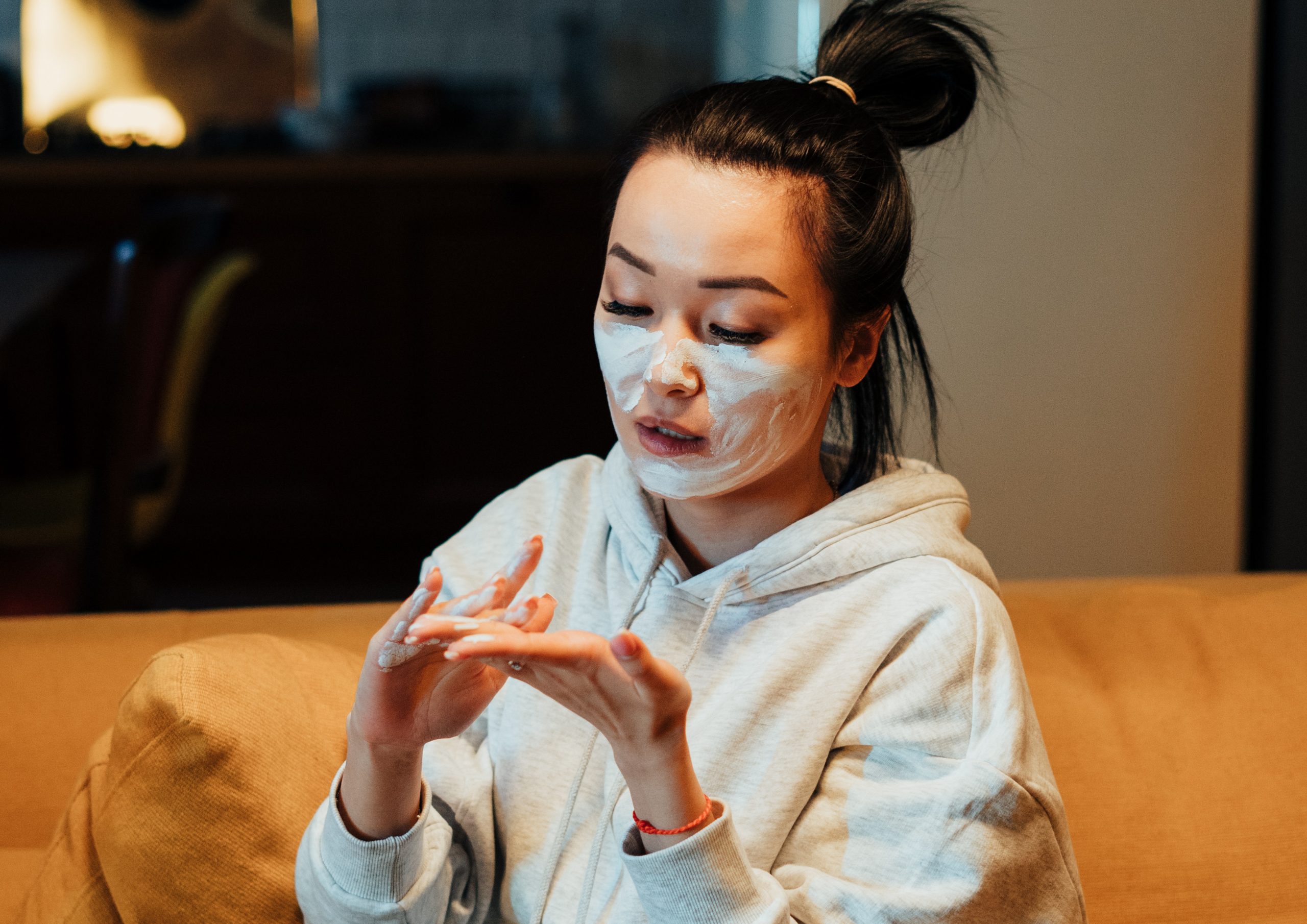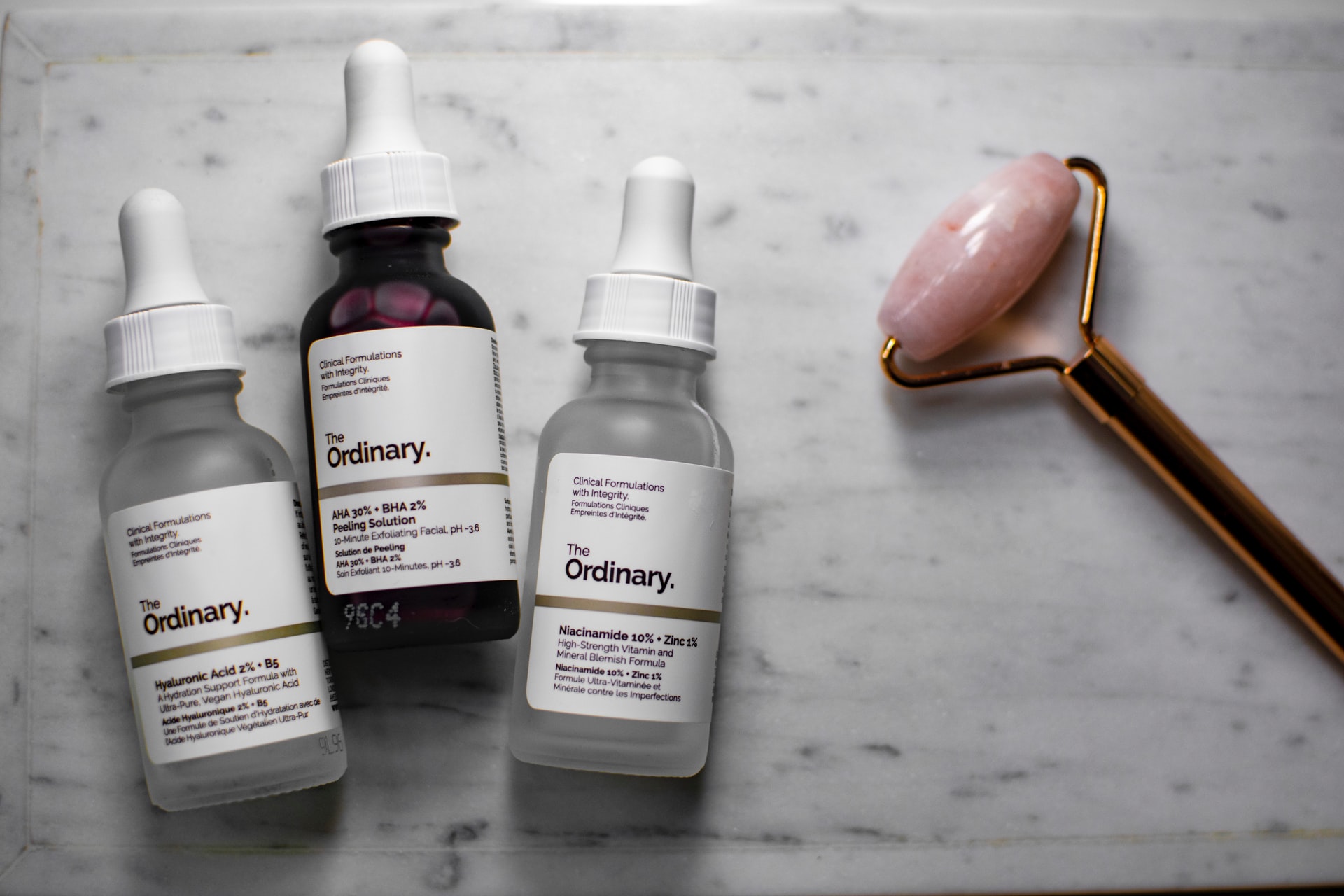
We talk about exfoliation a lot, as a key part of your skincare routine. With the various options for physical and chemical exfoliators, scrubs, cloths and the like, it can be difficult to navigate. Knowing what works for your skin is something only you can really tell.
Yes, we all want smoother, brighter skin. But using the wrong type of exfoliator is only going to irritate your skin. And that goes double for those with sensitive or dry skin.
Still, we really believe that exfoliating is such a vital part of your routine, it’s important to get it right. After all, what’s the point in investing in all those gorgeous goodies for your face if you’re applying them over dirt and dead skin cells?
Not only does it sound gross, but it’s definitely not good for you!
Of course, we don’t want you to cause any damage though. So, we’ve put together this easy list of dos and don’ts, so you can get the basics down.
1. DO Choose chemical exfoliants over physical ones
Yes, we mean you.
It doesn’t actually matter much what type of skin you have, physical exfoliators are likely to do your face more harm than good. They’re physical, like the name says. And this means they use abrasive ingredients to buff away dead cells on the surface of your skin.
You’ll find many of them use ground nutshells, fruit pits, sugar and sometimes even salt. But the catch is this: the harder the little granules in your scrub, the more damage it can do to your skin.
Chemical exfoliants use acids and enzymes (depending on the brand) to dissolve dead skin, rather than buffing it away. They break the bonds between the cells down, which makes them a doddle to wipe away.
Yes, we know chemicals don’t seem like a good thing for your skin, but in this case, it’s true. Especially when you compare them to physical exfoliants, which are closer to a pumice for your face… lovely.

2. DON’T Overdo it
Here’s a little secret – exfoliating your face every day isn’t going to make your skin smoother and brighter any faster than doing it once a week.
In fact, overdoing your exfoliation will probably cause far more serious damage. And that’s because it harms your skin’s natural barriers.
Without that barrier, your skin is naked and exposed. Which means dryness, soreness, dehydration and ultimately, acne breakouts. What you’re essentially doing is removing the upper layer of your skin, and not giving the next layer time to heal.
Keep it to once or twice a week, folks.
3. DO Exfoliate before bed
That means your skincare routine has to be different at night and in the morning.
Exfoliating your skin reveals the fresh, shiny new layer of skin beneath the dead cells. And, as we’ve already mentioned, this layer is sensitive and kind of vulnerable. Exfoliating at night, your skin has time to heal as you sleep. But doing it in the day exposes it to the elements, which is doing it no favours.
In short, exfoliate at night, not first thing in the morning, and thank us later.
4. DON’T Exfoliate after a laser treatment or peel
We love a good life-changing treatment, as you’ve probably worked out. But after any peel or laser treatment, you’ll be advised to be gentle with your skin. Chemical peels (the ultimate, medical-grade exfoliant) and laser treatments can make your skin extra sensitive for a while.
Exfoliating during this time is just too harsh for your skin to manage. Besides which, you’re going to do some serious damage (and throw away the time, money and effort you spend on the treatment).
5. DO Wear an SPF
If we’ve said it once, we’ve said it a thousand times: sunscreen is incredibly important.
But there are times when it’s even more important. As we’ve said, after exfoliating, your skin is as sensitive as a baby mouse (which incidentally, is called a pinky). That means it’s delicate, and can be easily harmed by damaging UV rays from the sun.
So, slap on the SPF!
6. DON’T Keep going if your skin is getting irritated
For that matter, don’t keep at anything if you’re getting irritated.
But yes, exfoliating when your skin isn’t reacting well is a terrible idea. If your skin gets red, feels tender or stings like hell, stop!
It might be that you’ve overdone it. It might be that the particular brand you’ve chosen isn’t working for your skin. But take a break, give a week or so for your skin to recover, and do some research into your skincare products in the meantime.
There are plenty of chemical exfoliants out there that target various different skin types. Don’t worry if your skin is unusually sensitive. Where there’s a will, there’s a way.

7. DO Keep up the rest of your routine
Exfoliating alone isn’t going to do much for your skin. It’s an important part of a routine, but it’s the whole routine that really makes the difference.
When all’s said and done, exfoliating is just manually removing the dead skin cells and built-up dirt on your face. Which means removing the skin’s natural barriers temporarily. So you need to continue feeding your skin when you’re done.
That means serums and moisturisers, to help restore some hydration (and a protective barrier) to your skin.
8. DON’T Pressure yourself
By which we mean, don’t put your skin under pressure. Don’t rub, pull, tug or drag. Those things are all terrible for your skin in the best of circumstances, never mind with added acid.
Chemical exfoliants are powerful enough without you going buffer mad. Be gentle, treat your skin nicely, and pay attention to how your skin reacts. Applying too much pressure won’t make the exfoliant work any better, it’s just more likely to cause micro-tears.
9. DO Remember your body
So many people forget that there’s more to your skin than just your face! Exfoliating your body is as important as exfoliating your face, and the chances are that your skin type carries through.
If you’ve got dry skin, then your skin is likely to be dry all over. For oily skin, then the chances are you’re oily on at least your chest and back. If you want to avoid backne and blocked pores, consider smoothing your body a few times a week too.
However, though chemical exfoliants are great for your face, they’re really not practical for your entire body. Some body washes contain exfoliants (and some moisturisers too), but you’ll be fine with a physical exfoliant for your body, as the skin is less sensitive.
10. DON’T Wash your face after exfoliating
This might sound like a no-brainer, but you’d be surprised how common it is.
A chemical exfoliant is not a product that works instantly. Which means the chemicals actually take a while to get to work dissolving all those lovely dead cells.
Let it sit for fifteen minutes (or half an hour if you can), and it’ll do its work nicely. When you’re done waiting, follow it up with your evening skincare routine.
Maybe exfoliating isn’t as simple as you thought. But it’s worth putting the time in to figure out how well it can work for you (which is likely to be very well!). And it’s worth learning the right way to do it.
It’s a great technique, especially with all the amazing products available. But you’ve got to do it right to really get the benefits.